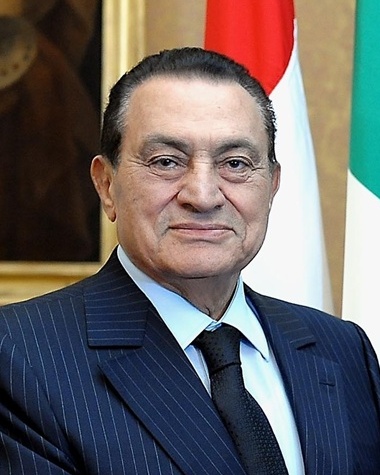A Cairo court ruled on Saturday that it did not have jurisdiction over what it judged to be politically motivated charges, and dismissed the case. Mubarak, 86, was also acquitted of several other corruption charges. His interior minister, Habib al-Adly, and several senior Mubarak-era police officials were acquitted at the same time, as were Mubarak’s two sons, Gamal and Alaa, and an exiled Mubarak-era businessman, Hussein Salem.
“It was not suitable to try him of crimes according to the penal code,” the presiding judge, Mahmoud Rashidi, said as he threw out the murder case.
Mubarak’s supporters erupted into celebration when the verdicts of the retrial were read out.
The judgment overturns the life sentence Mubarak received in June 2012, and means he will face no punishment for allegedly sanctioning the murder of 846 protesters during the uprising or for allegedly profiting from the export of gas at below-market rates.
The number of his supporters outside the court far outnumbered the families of protesters who died in the Tahrir Square revolt that had embodied the hopes of the Arab spring and forced Mubarak from power.
The father of Ahmed Khaleefa, 19, who was killed in 2011, said outside the court: “This is a political verdict. The judiciary has been procrastinating for four years so they could clear him after hope had been lost. The verdict hit us like bullets. I consider that my son Ahmed died today.”
For Egypt’s revolutionaries, the decision is the apogee of a counter-revolution overseen by the country’s new president, Abdel Fatah al-Sisi, who was head of military intelligence under Mubarak.
“It’s very depressing,” said Ahmad Abd Allah, a leader in the 6 April youth movement that helped lead protests in 2011 and has since been banned. “I saw the blood of the people who died in January 2011, and I carried some of them myself. What a shame for the judicial system, what a shame for Egypt as a state.
“But this wasn’t unexpected. The Mubarak era still hasn’t fallen. It hasn’t stopped killing – so why would they say Mubarak is guilty when they’re doing the same thing.”
Security forces fired tear gas and birdshot and aimed water hoses on a crowd of around a thousand demonstrators who had gathered in downtown Cairo.
They had been chanting slogans against Mubarak and against Sisi and Morsi, the two men who have served as president since him. An eyewitness said both Morsi supporters and liberal secular protesters appeared to be present.
Health ministry spokesman Hossam Abdel Ghaffar told Reuters two protesters were killed and nine injured in the clashes but said he had no further details.
A few dozen young people gathered to protest against the verdict in the city of Suez, site of the first death of the uprising, but they were quickly dispersed by police, security sources said.
For others in Egypt, Mubarak’s fate has become less significant, with millions either exhausted by the four years of political turmoil that his removal unleashed, or far angrier at his one-time successor, the ousted Islamist president Mohamed Morsi, whom Sisi unseated in July 2013.
The ruling leaves Mubarak convicted of just one crime during his three decades in power. He was found guilty in May on separate charges of misusing public funds, though his sentence ends soon.
Original Article
Source: theguardian.com/
Author: Patrick Kingsley

No comments:
Post a Comment